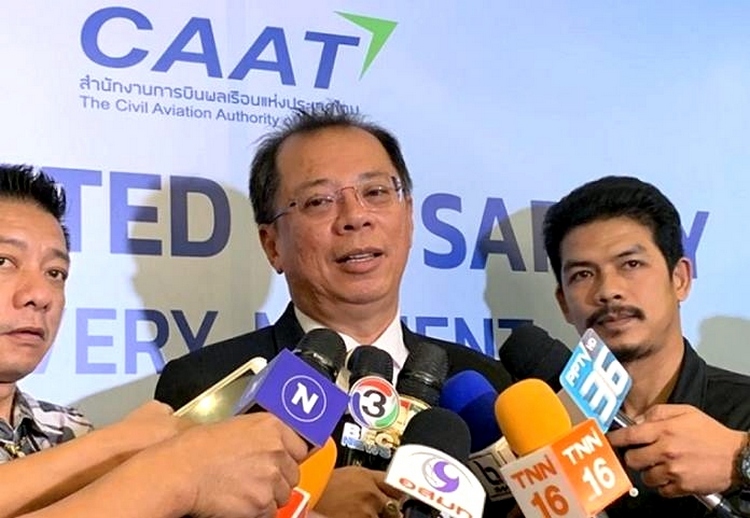
The Civil Aviation Authority of Thailand has today published to airlines the new rules for foreigners entering the country by air. They instruct airline check-in staff to scrutinize every passenger’s vaccination documentation prior to boarding, starting Monday January 9. The order lasts until the end of January but will likely be extended or made harsher in the light of experience.
All air passengers of any nationality, aged 18 and over, will need documentary proof of at least two anti-covid vaccine shots. The same paperwork could be required too by Thai immigration on landing, although this latter step may be on an occasional or random basis as the main thrust is on the shoulders of the air carriers. Unvaccinated or undocumented travellers will likely be refused boarding as will those who appear sick.
Exemptions from the requirement are limited at present to foreign boys and girls under 18, all Thai nationals and foreigners working here with authorized permits. The latter two groups are covered by Thailand’s social security and public health systems and are not regarded as high risk for that reason. The current order does not appear to include arrivals by land or sea. That’s likely because of technical difficulties at busy border crossings, but may be a temporary relief depending on the future of the virus infection in Thailand.
Most air arrivals will not be required to show tourist or anti-covid health insurance under the CAAT ruling. However, those arriving in Thailand with onward tickets to destinations which require RT-PCR clinical testing as part of that country’s immigration requirements will need Thai insurance. For example, both India and China both require all entrants, including their own nationals, to have RT-PCR health tests within 48 hours of their flights from Thailand. Thus Thai health insurance is needed for such travellers in case they fail their pre-flight covid examination here.
No guidance is given in the CAAT circular about the details of such insurance. It will presumably need to specify potential hospitalization in case of proving covid-positive whilst in Thailand. As with the vaccination record check, the main responsibility will be with the airlines to check carefully the onward travel plans of their customers, or risk heavy fines if they are less than diligent. The extra costs of insurance could deter some Chinese tourists from visiting Thailand as the financial blow has already caused some Indians to cancel Thai holidays. It is also unclear whether Thai hospitals and clinics have the staff or resources suddenly to guarantee thousands of RT-PCR within 48 hours of intended departure at a low cost, a potentially mammoth task.
The CAAT regulations spring from Thai governmental concerns about the rise in the number of infections in China as Beijing cancels its former strict ban on international travel. Thai authorities are determined to “do something” whilst ensuring that the measures do not single out Chinese visitors to Thailand for special treatment lest any discrimination jeopardizes Sino-Thai economic and political ties. But the new requirement for all air passengers to show vaccination records pre-boarding will be unpopular internationally. Travel gurus are already saying that Thailand must beware of throwing the baby out with the bath water.

 |
 |
 |




